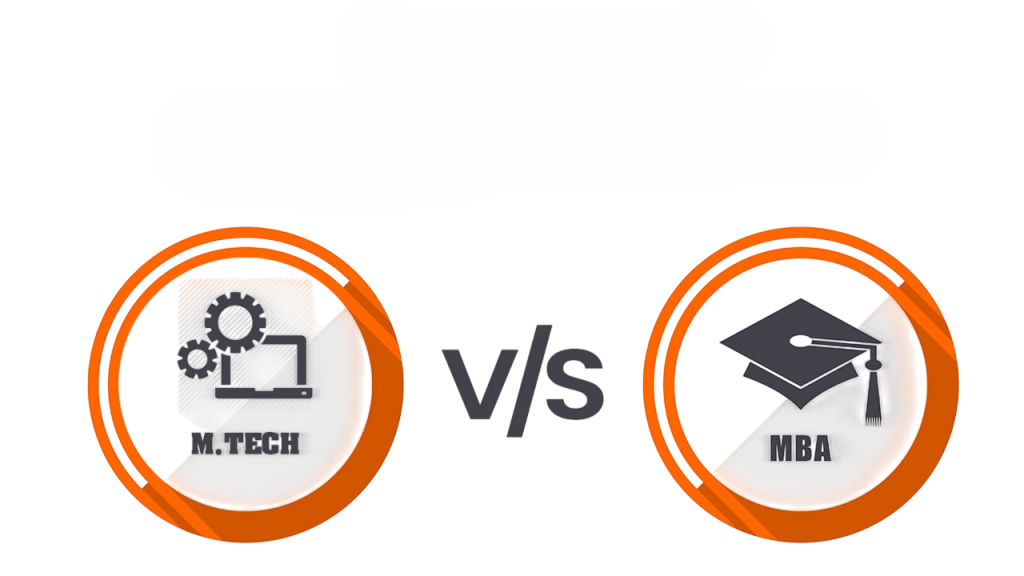
- Path to Success
- Degree Overview
- Academic Differences
- Skill Sets Acquired
- Industry Orientation
- Career Scope
- Salary Comparison
- Growth Opportunities
- Entrepreneurial Potential
- Admission Criteria
- Conclusion
Path to Success
In the rapidly evolving world, higher education has become one of the most vital tools for career development. With the wide array of options available, choosing the right degree becomes crucial in determining one’s career path. A degree not only represents the academic qualifications of an individual but also acts as a stepping stone to the professional world, helping shape the future of students. Whether pursuing a degree in business, technology, or a specialized field, each academic pursuit offers a different set of opportunities, challenges, Placement and Softskills Training , and rewards. A postgraduate degree is more valuable than ever in the competitive and ever-changing work market of today. Students are increasingly looking for higher education to obtain a competitive edge since businesses change quickly as a result of globalisation and technological innovation. The Master of Business Administration (MBA) and Master of Technology (MTech) degrees are two of the most well-liked and often compared postgraduate alternatives.
Degree Overview
A degree serves as the foundation of academic learning and specialization, designed to equip students with both theoretical knowledge and practical skills needed for a particular career. For example, a Bachelor’s or Master’s degree in Engineering, Business Administration, or Computer Science typically covers core subjects such as technical analysis, project management, leadership, or innovation.
- The degree structure may vary depending on the institution and specialization, but it typically includes a combination of required core courses, GATE Exam Eligibility Criteria elective courses, and practical modules such as internships or projects.
- For instance, a business administration degree might involve subjects like marketing, finance, operations management, and human resources, while a computer science degree would focus on subjects like algorithms, data structures, coding languages, and systems analysis.
- Moreover, many programs offer specializations or concentrations that allow students to focus on specific areas within their chosen field.
These may include areas like artificial intelligence, digital marketing, or financial analysis. Programs are also evolving to offer more industry-relevant modules, ensuring that students are prepared for the ever-changing demands of the workplace.
Do You Want to Learn More About Aptitute and reasoning? Get Info From Our Aptitute and reasoning certification Training Today!
Academic Differences
While an MBA offers a wide, strategic grasp of business management, leadership, and finance, an MTech concentrates on in-depth, specialised technical knowledge in an engineering subject, with an emphasis on research and technical problem-solving. The main distinction is that an MBA prepares students for administrative and strategic roles across industries, whereas an MTech seeks to produce technical experts and innovators.

An MBA offers a comprehensive, strategic grasp of business management, leadership, and finance, whereas an MTech concentrates on thorough, specialised technical knowledge BSc Nursing Growth Path in an engineering subject, with an emphasis on research and technical problem-solving. An MBA prepares students for managerial and strategic roles across industries, whereas an MTech seeks to develop technical experts and innovators. This is the main distinction.
Skill Sets Acquired
A degree is not merely about acquiring theoretical knowledge; it also serves to equip students with a diverse set of skills necessary to excel in the professional world. The skill sets learned during a degree program are often a combination of technical abilities and soft skills that enable graduates to be both productive and adaptable in their careers.
- For technical degrees, such as those in engineering or computer science, students learn practical skills like coding, technical problem-solving, data analysis, and the design of systems or software.
- These abilities are central to the technical workforce, enabling students to develop Coding and Decoding and implement solutions for a variety of industries.
- In contrast, degrees in fields like business, humanities, or social sciences often emphasize skills such as leadership, critical thinking, communication, and strategic planning.
- A degree in business administration, for example, opens a wide range of career paths in various industries, such as marketing, finance, consulting, human resources, and operations.
- Graduates can pursue roles such as business analysts, project managers, marketing executives, financial analysts, or even entrepreneurs.
- Similarly, technical degrees in fields like engineering, computer science, or information technology offer a variety of career options.
- Career paths: Provides access to banks, finance, marketing, consulting, and entrepreneurship, among other industries.
- The main competencies are problem-solving, strategy, leadership, and business acumen.
- Earning potential: Offers a quicker route to more pay and can result in significant earning potential, particularly in positions involving business interactions. MTech
- Expands technical proficiency, resulting in specialised positions and research and development progress.
- Potential career routes include positions in academia, R&D, product development, and core engineering.
- Enhances problem-solving abilities and advanced technical knowledge in a particular field.
- Academic Requirement: A bachelor’s degree from an accredited university is necessary. A minimum of 50–60% may be required for some prestigious universities, with reserved categories frequently receiving a 5% relaxation.
- Entrance Exams: It is required to have a legitimate score on an entrance exam such as the CAT, XAT, MAT, NMAT, or GMAT.
- Selection Process: Many prestigious programmes include Group Discussions (GD), Written Ability Tests (WAT), and Personal Interviews (PI) in addition to entrance exams.
- The majority of programmes do not require work experience, however Executive MBA programmes do. MTech Admission Requirements
- Educational Requirement: A Bachelor of Engineering or Bachelor of Technology degree in a related field is necessary.
- Entrance Exams: The Graduate Aptitude Test in Engineering, or GATE, is the main entrance exam.
- Selection Procedure: The GATE score is usually used to make the selection.Additionally, certain colleges could have their own entry exams or selection procedures.
- Minimum Marks: Typically, a greater minimum percentage is needed, typically between 55 and 60 percent for bachelor’s degrees, with reserved categories being exempt by 5%.
Additionally, many programs today include experiential learning components such as internships, co-op programs, or project-based courses that allow students to apply their skills in real-world environments. This exposure is critical for bridging the gap between theoretical learning and practical application.
Would You Like to Know More About Aptitute and reasoning? Sign Up For Our Aptitute and reasoning certification Training Now!
Industry Orientation
The industry orientation of a degree is one of its most crucial aspects, as it directly influences how well students are prepared for their careers. Many programs today are increasingly designed to align with the practical needs of the industry, ensuring that graduates are equipped with the relevant skills and knowledge that employers are seeking.In comparison, some degrees, particularly in the arts or humanities, may be less directly tied to specific industries. While they provide valuable skills, students may need to pursue additional training or certifications to be fully industry-ready. Nonetheless, the adaptability of these programs can still allow graduates to pivot across various sectors.
Career Scope
The career scope for graduates of any degree is perhaps the most critical factor influencing a student’s decision to pursue higher education. With the rapid changes in the job market due to technological advancements and global economic shifts, it is essential to understand the long-term career potential a degree offers, along with the importance of Softskills Training in enhancing employability.
In contrast, fields like education and the arts may see slower job growth, although these careers can be highly rewarding in terms of personal fulfillment. Graduates in these areas may find work in teaching, writing, public policy, or creative roles in entertainment and media.
Salary Comparison
Salary is often a key deciding factor for students when choosing a degree. Graduates expect to be financially rewarded for their years of education and hard work. However, salary potential varies widely depending on the industry, location, and career level. However, salary potential isn’t always tied directly to the degree itself. Forefront of Bridging the Technology Geographic location plays a significant role in determining earnings. For example, tech professionals in cities like Silicon Valley or Seattle may earn significantly more than their counterparts in smaller cities or rural areas due to the higher cost of living and demand for specialized skills.
Growth opportunities
While an MTech enables progress through technological specialisation, research, and development, an MBA offers growth in managerial roles and a variety of commercial sectors. While an MTech is best suited for positions in engineering, technology, and academics, an MBA leads to employment in management, finance, and consulting, which frequently have better immediate income potential. The decision is based on your interests and long-term professional objectives.

- MBA
Gain Your in Aptitude and reasoning Training by Enrolling in Our Aptitude and reasoning training Now!
Entrepreneurial Potential
Because of its emphasis on business management, strategy, and leadership, an MBA is typically better for those with entrepreneurial potential as it prepares them for positions like founding a company or working as a management consultant. Though its entrepreneurial path is frequently more focused on developing or refining technical products and solutions within a specialised subject, Leadership Theories an MTech offers the technical specialisation and research abilities required for innovation within a technical domain. Faster earning potential is typically provided by an MBA, particularly in cross-functional or business-facing roles. However, it has a larger initial cost. MTech is less expensive, but unless you work in a specialised field, it can take longer to achieve comparable pay levels.
Preparing for Aptitude and reasoning Job? Have a Look at Our Blog on Aptitude and reasoning training To Acte Your Interview!
Admission Criteria
A bachelor’s degree and entrance examinations like the CAT or GMAT, which emphasise management skills, are prerequisites for admission to an MBA programme. A bachelor’s degree in a relevant engineering discipline is necessary for entrance to an MTech programme, which usually depends on the GATE exam and emphasises technical specialisation. A minimum undergraduate percentage is required for both, although MTech has more stringent prerequisites and favours relevant degrees.
- MBA Admission Requirements
Conclusion
In conclusion, pursuing a degree offers a wide array of benefits and opportunities, both academically and professionally. It provides students with the essential skills, knowledge, and experience necessary to thrive in their chosen industries. Whether it’s a degree in business, technology, healthcare, or the arts, each program offers unique advantages that can shape the trajectory of a student’s career. Choosing the right degree requires careful consideration of personal interests, career aspirations, the importance of Softskills Training , and the evolving needs of the global job market. While salary potential and career growth opportunities are crucial factors, it’s also important to think about long-term satisfaction, work-life balance, and the opportunity for continuous learning and development. With the right guidance and a well-rounded academic program, graduates can look forward to a fulfilling career with ample opportunities for advancement and entrepreneurial success. As industries continue to evolve and new technologies emerge, the value of education and the relevance of degrees will remain at the heart of career development, ensuring that graduates are well-prepared for the challenges and rewards of the professional world.


